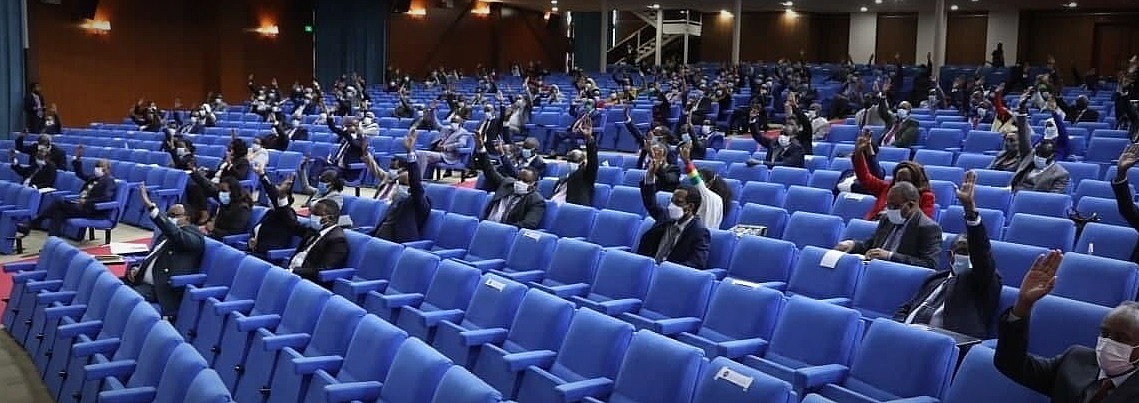
(March 20, 2015) The House Industry Affairs Standing Committee is reviewing the Draft Industrial Parks Bill which gives the federal government the task of developing parks at the national level.
The bill, which will officially end the term “industrial zones”, a term that has been abused, according to an official, has seven sections, including establishment of organizations within the park, recruitment of foreign employees to work in the park, treatment of international park developers, acquisition of land and other immovable properties as well as conflict resolution.
The bill was referred to parliament on March 10, 2015, when the Standing Committee began looking at it. The first Industrial Parks Proclamation prepared by the Ethiopian Investment Commission (EIC)was referred for parliamentary review at the first meeting of the House after a month’s recess.
“The name industrial zone is an internationally used common name but its name has been abused in our country where some collection of manufacturing sheds or five to Sixfactories are being referred to by the name industrial zone. Therefore, we have intentionally avoided the name industrial zone in the proclamation,” Fitsum Arega, director general of the EIC said.
Although industrial parks was an area of the government’s focus in the first Growth & Transformation Plan (GTP), the intention was not implemented through laws that defined what industrial parks are, institutional structure, and responsibilities of developers, administrators and enterprises, states the explanation on the draft proclamation that was presented to the parliament. Due to the absence of these legal documents, development of the Eastern Industrial Zone and Bole Lemi Industrial Zone failed to have full services required, such as connection roads, electricity, telephone, water as well as banking and customs services, according to Fitsum.
The bill claims that it will be vital to decrease environmental pollution, organise city dwelling, enhance export of manufacturing products and ensure sustainability.
“The works to make the existing zones fit the standards of parks will be done; these could be establishing one-stop services for Customs and other governmental services,” Fitsum said.
The preparation of the bill by Ethiopian Investment Commission had inputs from the Ministry of Industry (MoI) and the newly established Industrial Parks Development Commission (IPDC), regional government as well as a Chinese group that conducted a study and forwarded recommendations on its own. “The government is the one that builds the parks, supports for the construction and carries out issues related to that such as selling and renting plots,” said Fitsum.
An official from the IPDC states that the proclamation will enable the administration of the parks to be better than it has been so far.
The federal government acting as custodian will take land from the regional governments and build the parks, fulfilling the necessary infrastructure and rents to developers, said the same source. The IPDC recommends the establishment of the parks centrally in the federal level but the regions can also develop their own parks, the source added.
The producers in the parks are given more advantages than those outside. Such advantages include selling their products, all of which are expected to be exported, with tax exemption, which does not hold true for those outside. And the producers in industrial parks need to export all of their products to the foreign market.
There are four operational parks in the country and two are in the process of establishment. The operational ones are Bole Lemi 1 and 2, Eastern Industrial Park and George Shoe. The ones in progress are Ayka Addis, a Turkish textile factory and government’s joint project and Huagian industrial park. Industrial parks in Kombolcha and Mekelle will be constructed with Prime Minister Hailemariam Dessalegn having laid the cornerstones for their construction.
“We are doing all the necessary preparations for the implementation of the proclamation after it gets passed by the parliament and we will immediately make the directives and implementation manuals to make the implementation take no more than three months from now,” Fitsum affirmed.
Seventy percent of industrial parks area will be factories while the rest will be residences and green areas as well as service giving sites and offices.


